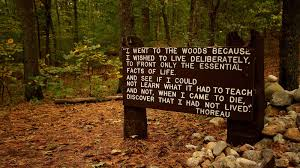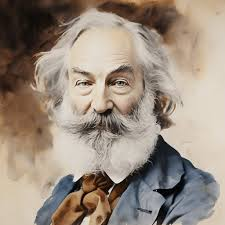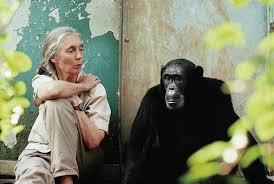Transcendentalism: A Beacon of Individualism and Spirituality in American History
- Debbie Brown

- Jan 20
- 7 min read
Updated: Feb 11

Transcendentalism was a philosophical, literary, and social movement that emerged in the early-to-mid-19th century in the United States. Rooted in the ideals of individualism, intuition, and the inherent connection between humans and nature, it represented a radical departure from the rigid doctrines of organized religion and materialism that dominated the era.
At its heart, Transcendentalism emphasized several core tenets, including, but not limited to: The Inherent Goodness of People and Nature, Self-Reliance and Individualism, and The Over-Soul.
Transcendentalists believed that individuals and nature were fundamentally good and that society and its institutions often corrupted this purity. For example, they pointed to the destructive impact of industrialization on the environment and the erosion of personal freedoms under institutional control. Nature, in their view, was a reflection of the divine and a sanctuary where one could reconnect with their spiritual essence.
The Transcendentalist movement celebrated personal intuition and creativity over conformity and reliance on external authorities. Emerson’s essay Self-Reliance argues that true fulfillment comes from trusting one’s inner voice rather than adhering to societal expectations. This principle inspired many to embrace their unique perspectives and pursue independent thought and action.
The concept of the over-soul, articulated by Ralph Waldo Emerson, often considered the father of Transcendentalism, laid the philosophical groundwork for the movement. The Over-Soul represents a universal spiritual presence that connects all living beings. Emerson’s Nature describes how immersion in the natural world allows individuals to perceive this shared divine essence and achieve a profound sense of unity.
Celebrated Transcendentalists:
Ralph Waldo Emerson Ralph Waldo Emerson (1803-1882) was a writer, philosopher, and lecturer widely regarded as the leader of the Transcendentalist movement. His groundbreaking essay Nature (1836) marked the birth of Transcendentalism, introducing the idea that humans could connect with the natural world. Emerson's Self-Reliance (1841) encouraged readers to trust their inner voice and reject societal pressures, becoming a cornerstone of American individualism. Emerson fostered a community of thinkers who would expand and develop Transcendentalist principles. He was also an outspoken advocate for abolition, education reform, and women's rights, connecting his philosophical ideals to practical social causes. His lectures and writings inspired countless readers to seek self-improvement, embrace nature, and challenge institutional authority. Emerson's belief in the divine interconnectedness of all life continues to resonate as a hallmark of Transcendentalist philosophy.
Henry David Thoreau, a protégé of Emerson, exemplified Transcendentalist principles in practice through his works Walden and Civil Disobedience (Thoreau, 1854/1995). Thoreau moved to a small cabin at Walden Pond in 1845, where he lived for two years, immersing himself in nature and documenting his reflections on simple, deliberate living. Walden encourages readers to detach from materialism and embrace introspection, aligning with Transcendentalist beliefs in personal growth and harmony with the natural world. Beyond his writing, Thoreau became a model of civil disobedience, refusing to pay taxes that supported slavery and the Mexican-American War. His essay Civil Disobedience directly inspired later activists such as Mahatma Gandhi and Martin Luther King Jr., emphasizing that individuals have a moral duty to resist unjust laws through peaceful means.

Walt Whitman, though not an original Transcendentalist, reflected the movement’s ideals in his poetry collection Leaves of Grass (Whitman, 1855/2005). Whitman was deeply influenced by Emerson, who praised his work as embodying a new, uniquely American voice. Leaves of Grass celebrates the dignity of the individual and the interconnectedness of all life. In poems like “Song of Myself,” Whitman breaks from traditional poetic forms to emphasize the boundless nature of the self, viewing the human spirit as part of the divine Over-Soul. His work was revolutionary for its time, embracing both nature and humanity in its entirety, and positioning Whitman as a bridge between Transcendentalism and modern free verse poetry.

Louisa May Alcott, known for her novel Little Women, infused her works with themes of self-reliance, moral growth, and social reform (Alcott, 1868/1994). Raised in a Transcendentalist household, Alcott was heavily influenced by her father, Bronson Alcott, and the intellectual circles of Emerson and Thoreau. Little Women reflects her belief in self-improvement, the importance of family, and the strength of women in overcoming societal restrictions. Beyond her fiction, Alcott worked as a nurse during the Civil War, documenting her experiences in Hospital Sketches, and was an advocate for abolition and women’s suffrage. Her commitment to progressive ideals and her portrayal of strong, independent female characters made her a celebrated figure in both literary and social reform movements.
Transcendentalism in Popular Culture
The works and ideas of Transcendentalism have continued to resonate and influence popular culture through literature, film, music, and other mediums. The philosophy’s celebration of individuality, spirituality, and nature appears in various forms:
Many contemporary writers incorporate Transcendentalist themes. For instance, Into the Wild by Jon Krakauer (1996) follows the real-life journey of Christopher McCandless, a young man who abandoned material comforts in search of a deeper connection with nature, echoing Thoreau’s experiment at Walden Pond.

The themes of simplicity, nature, and resistance to societal norms are present in movies like Dead Poets Society (1989), where Robin Williams’ character encourages students to embrace individualism and “seize the day,” embodying the ideals of Emerson’s Self-Reliance. Similarly, The Secret Life of Walter Mitty (2013) emphasizes breaking free from societal constraints and reconnecting with the natural world.
Modern music often reflects Transcendentalist ideas. Folk singers like Bob Dylan and Neil Young have written songs that celebrate nature, question authority, and encourage introspection. More recently, artists such as Bon Iver and Fleet Foxes incorporate themes of solitude, spirituality, and nature in their lyrics and soundscapes, creating a modern echo of Emerson and Thoreau’s ideals.
The environmental movement’s reverence for nature draws heavily from Transcendentalist philosophy. Documentaries like An Inconvenient Truth (2006) and environmental activism by figures like Greta Thunberg highlight humanity’s need to reconnect with and protect the natural world, much like the ideas expressed in Thoreau’s Walden.
The Transcendentalist spirit appears in shows like Parks and Recreation through the character Ron Swanson, whose rejection of bureaucracy and embrace of self-reliance mirrors Emerson’s ideals. Similarly, nature documentaries such as those narrated by David Attenborough evoke the sense of awe and reverence for the natural world championed by Transcendentalist thinkers.
Modern Figures as Transcendentalists
While the formal Transcendentalist movement waned in the late 19th century, its spirit lives on through the lives and practices of contemporary figures.
Jane Goodall is a globally celebrated primatologist and conservationist who revolutionized the scientific understanding of chimpanzees. Her groundbreaking research, which began in Tanzania’s Gombe Stream National Park in the 1960s, revealed the profound similarities between humans and chimpanzees, reshaping humanity’s view of the natural world. Beyond her scientific contributions, Goodall is a lifelong advocate for environmental sustainability and animal welfare. Through the Jane Goodall Institute and programs like Roots & Shoots, she empowers youth to take action in environmental conservation, embodying a deep spiritual connection to nature and inspiring global stewardship.

Media mogul, philanthropist, and influential cultural figure Oprah Winfrey, emphasizes spirituality, self-improvement, and intuition, aligning with Transcendentalist ideals. Through The Oprah Winfrey Show, she provided a platform for personal growth, education, and healing. Winfrey’s book club and interviews have encouraged millions to embrace self-awareness and transformative thinking. Her philanthropic efforts include significant contributions to education, particularly through the Oprah Winfrey Leadership Academy for Girls in South Africa, which empowers young women through education. Winfrey’s focus on inner strength, resilience, and spiritual enlightenment reflects the Transcendentalist celebration of individual growth and purpose.

Acclaimed novelist Richard Powers explores the intersection of humanity, nature, and science in his works. His Pulitzer Prize-winning novel The Overstory (2018) is a profound examination of the interconnectedness of humans and trees, offering readers a call to environmental awareness and action. By weaving together narratives of individuals whose lives are shaped by their relationships with nature, Powers echoes the Transcendentalist ideals of unity, reverence for the natural world, and resistance to societal complacency. His work inspires readers to view nature as a living, spiritual entity and challenges humanity to preserve its delicate balance.

Greta Thunberg is a globally recognized environmental activist who began her movement by protesting outside the Swedish Parliament at just 15 years old, demanding stronger climate action. Her initiative led to the global Fridays for Future movement, where students around the world strike to raise awareness about climate change. Thunberg has spoken at major international forums, including the United Nations Climate Action Summit, where her speech, “How Dare You,” became iconic for its passionate critique of global leaders' inaction. She has received numerous accolades, including being named Time magazine’s Person of the Year in 2019 and being nominated multiple times for the Nobel Peace Prize. Thunberg’s commitment to resisting societal complacency, her reliance on individual moral responsibility, and her spiritual reverence for the natural world embody the modern application of Transcendentalist values.

Conclusion
Transcendentalism was more than a philosophical movement; it was a call to action to live authentically, challenge societal norms, and seek a deeper connection with the world. By celebrating the individual spirit and the sanctity of nature, Transcendentalists like Emerson, Thoreau, Whitman, and Alcott shaped a cultural legacy that continues to inspire modern thinkers and activists. In a world increasingly defined by technological and societal complexities, the Transcendentalist ethos reminds us of the enduring power of simplicity, intuition, and unity with the natural world.
References
Alcott, L. M. (1868/1994). Little Women. Penguin Classics.
Emerson, R. W. (1836/2009). Nature and Other Essays. Dover Publications.
Gura, P. F. (2007). American Transcendentalism: A History. Hill and Wang.
Powers, R. (2018). The Overstory. W. W. Norton & Company.
Thoreau, H. D. (1854/1995). Walden; or, Life in the Woods. Dover Publications.
Thoreau, H. D. (1849/1993). Civil Disobedience. Beacon Press.
Whitman, W. (1855/2005). Leaves of Grass. Oxford University Press.



Comments